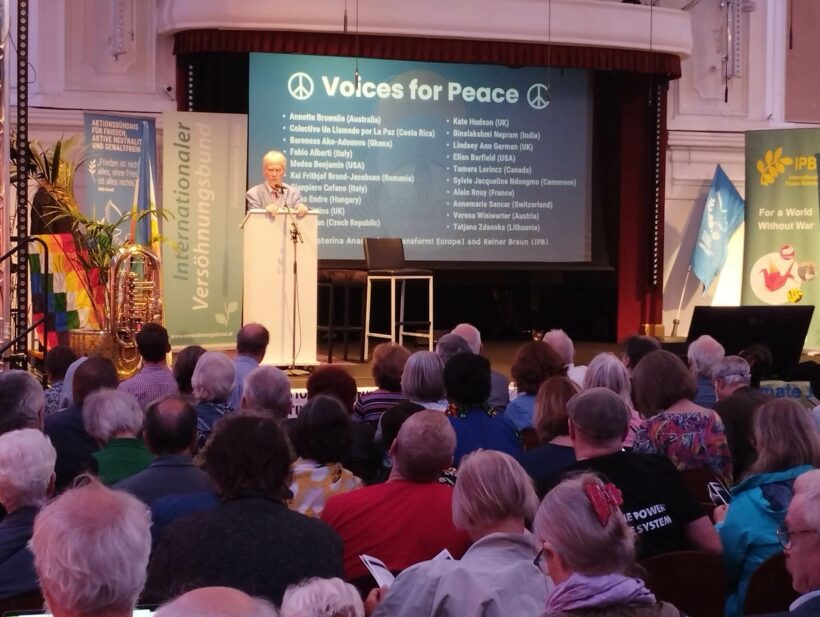“When violence causes silence, then we’re doing something wrong,” says a Cranberries lyric. This was the first thing that came to my mind when I saw the figures of two studies that came out last Monday, on arms spending (SIPRI)[1] and nuclear weapons spending (ICAN)[2], while I was watching the international conference on peace in Ukraine, organised by Nobel Peace Prize-winning and non-Nobel Peace Prize-winning international organisations in Vienna on 10 and 11 June.
By Nikos Stergiou*
The war in Ukraine, following Russia’s invasion in February 2022, is not the only armed conflict raging on the planet and of course, like all the others, could have been avoided. The cultivated “necessity” of armed confrontation has led to an almost complete absence from the international arena of peace diplomacy in recent years, leading to the death, despair and uprooting of millions of people, while the damage to infrastructure and the environment is truly incalculable.
At the Vienna conference, organised by international organisations such as the International Peace Bureau (Nobel Peace Prize 1910), the Women’s International League for Peace and Freedom (WILPF) (Nobel Peace Prize 1931 & 1946), CODEPINK and Transform! Europe, 300 representatives of organisations and movements from 32 countries met. For Greece, I had the honour to represent, in addition to World Without Wars and Violence, the Greek branch of the International Physicians for the Prevention of Nuclear War – IIPNW (Nobel Peace Prize 1984), the Greek office of Friends of Nature and OIKOPOLIS. The final declaration calls for an immediate start of negotiations and a ceasefire and calls for a global mobilization between 30/9 – 8/10. [3]
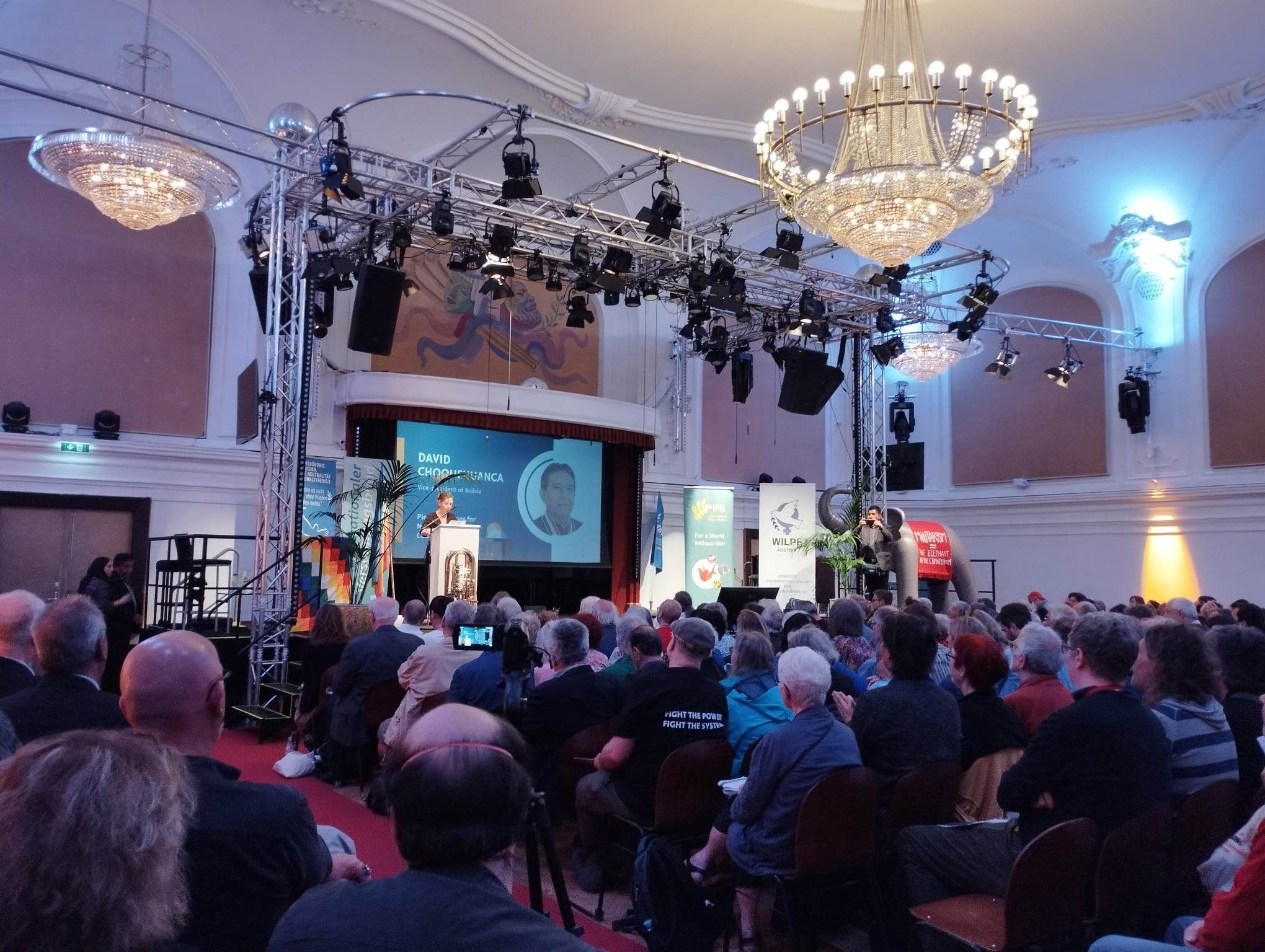
The Vienna Summit has been targeted by those who wish to continue the war and all the economic and political gains it entails. In particular, the Ukrainian embassy held a press conference two days before the summit, accusing the organisers and participants of being supporters of Putin and Russia. As a result, the venue for the Summit was changed and we received threatening phone calls at the new venue, so for security reasons the opening work was delayed by 3 hours. The websites of both the Summit and the IPB have been attacked by hackers and are not working as of this writing.
The targeting of organisations and individuals fighting for Peace, Nonviolence and Nuclear Disarmament is nothing new. I will remind you that in Greece, Nikos Nikiforidis was executed by the Greek state in 1951 for promoting the Stockholm Document (on nuclear disarmament) and “for seeking to implement subversive ideas by collecting signatures for peace”. And he was not alone, neither in Greece nor internationally. History seems to be repeating itself in Europe, and we are witnessing a new form of “cold war”, with new characteristics: The US is NATOizing Europe, social and societal conditions are getting worse for a larger and larger part of the population, while social and human rights, won with many struggles, are being constantly hit.
At the Summit, however, voices were heard not only from Europe, and that was its richness. Representatives from the geographic South and Asia conveyed their perspectives through their own experiences of decolonial struggles, now resisting the methods of neo-colonial politics: multinational corporations, coercive attachments to superpowers, and huge debts. And an important point was the highlighting of the contribution of military armaments to climate change, with the famous ecological “bootprint” [4]. Among the highlights of the Summit mentioned by the speakers, the following stood out:
– “The US stopped ceasefire signing and talks processes between Ukraine and Russia in March 2022. Ukraine’s NATO membership was planned since 1992.” (Jeffrey Sachs, Academic, USA).
– “War is projected as patriotic, while Peace as anti-national” and “the geographic South now wishes to be an equal partner rather than a unilateral ally and proposes international cooperation rather than international competition” (Anuradha Chenoy, Academic, India)
– “War sabotages the complementary feedback of difference, destroys Life, it is the culture of Death” (David Choquehuanca, Vice President of Bolivia)
– “The radioactive waste with Plutonium from the nuclear power plants in the Baltic Sea is equivalent to 10,000 Hiroshima-type bombs, and is divided between 2/3 of NATO’s and 1/3 of Russia’s and Belarus’ jurisdictions.” (Oleg Bodrov, Nuclear Scientist, Russia)
– “Only the warmongers desire war, as human life is of no value to them. Those who refuse to take up arms and fight, those who desire Peace, are the voices of reason and conscience. War is a crime by definition. Nonviolence is the ultimate weapon against violence” (Yurii Sheliazhenko – Ukrainian conscientious objector).
The war in Ukraine has brought back to the fore two very important existential issues: the danger posed by nuclear power plants and the even greater danger of nuclear weapons. As we saw at the beginning of this article, both SIPRI and ICAN surveys show an increase in military spending, an increase in spending on nuclear weapons by all nine countries that possess them, but also an increase in the number of nuclear warheads in a state of readiness, i.e. immediate launch/use. In practical terms, the above conclusions mean that the military industry has had another year of profit growth, there is more support for the creation of nuclear power plants as sources of radioactive material for military use, and the planet is even more at risk of returning to the era of single-cell organisms. But peace is dangerous…
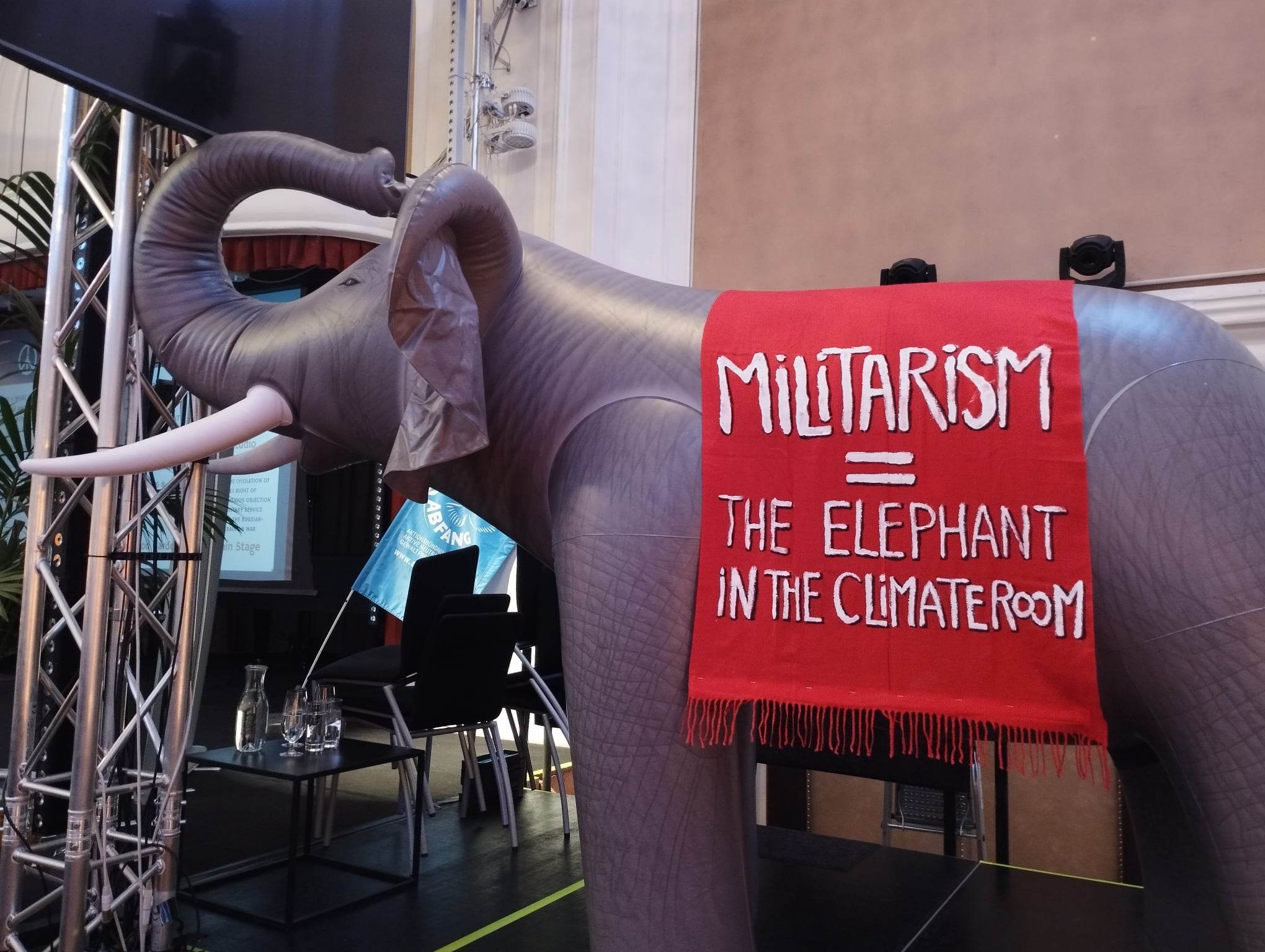
The revival of a pacifist, nonviolent and anti-nuclear movement at the local and international level is not, however, a utopia. The UN Nuclear Weapons Ban Treaty has already shown the way, as it was mobilised by the people, not by governments, and 68 countries have ratified it and another 24 have signed it, 3 of them members of the EU. 65 municipalities in Greece and the KEDE, have issued resolutions supporting and calling for the Greek government to sign it, as have over 500 cities around the world. [5]
However, in order to revive this movement, it is useful to reactivate the consciousness of the “public”, develop anti-militarist solidarity, and realize the cross-sectoral link that arms spending has with the issues of environmental destruction, refugeeism, economic misery, the degradation of public health and education, gender discrimination, patriarchy and the restriction of social freedoms and human rights. For example, if the US Department of Defense were a country, it would be the 5th largest polluter on the planet. Add in the rest of the military and you get a better picture of this morass that depletes human and natural resources in the name of “stability” while destabilizing everything it “touches”.
The danger of Peace lies in freedom, in the desire for life and equality of all people. It is a time bomb in the hands of the military industry that it cannot understand and disarm. It is a threat to a nonviolent society. To prevent the silence of violence, we need to further mobilize the voices of peace.
*Nikos Stergiou is president of the Greek branch of the organization World without Wars and Violence
Fotos: Nikos Stergiou
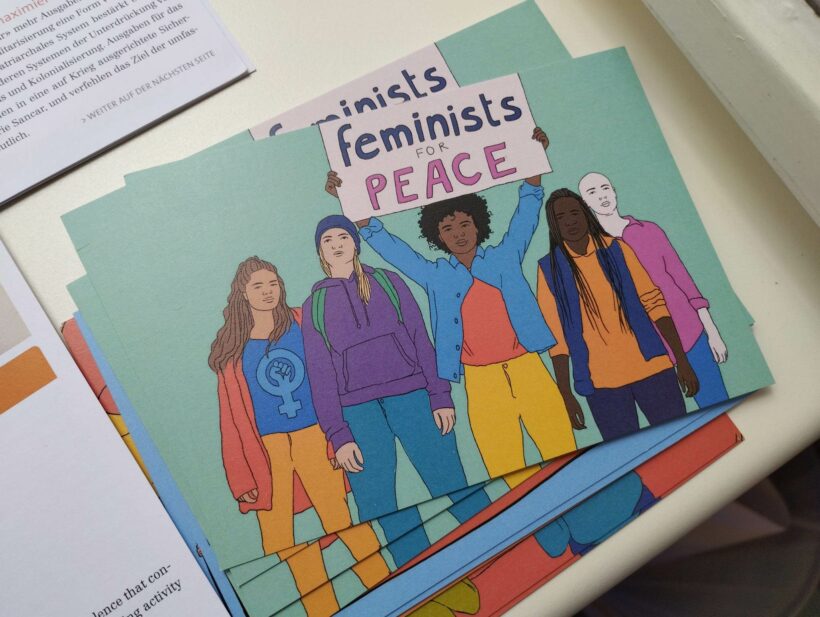
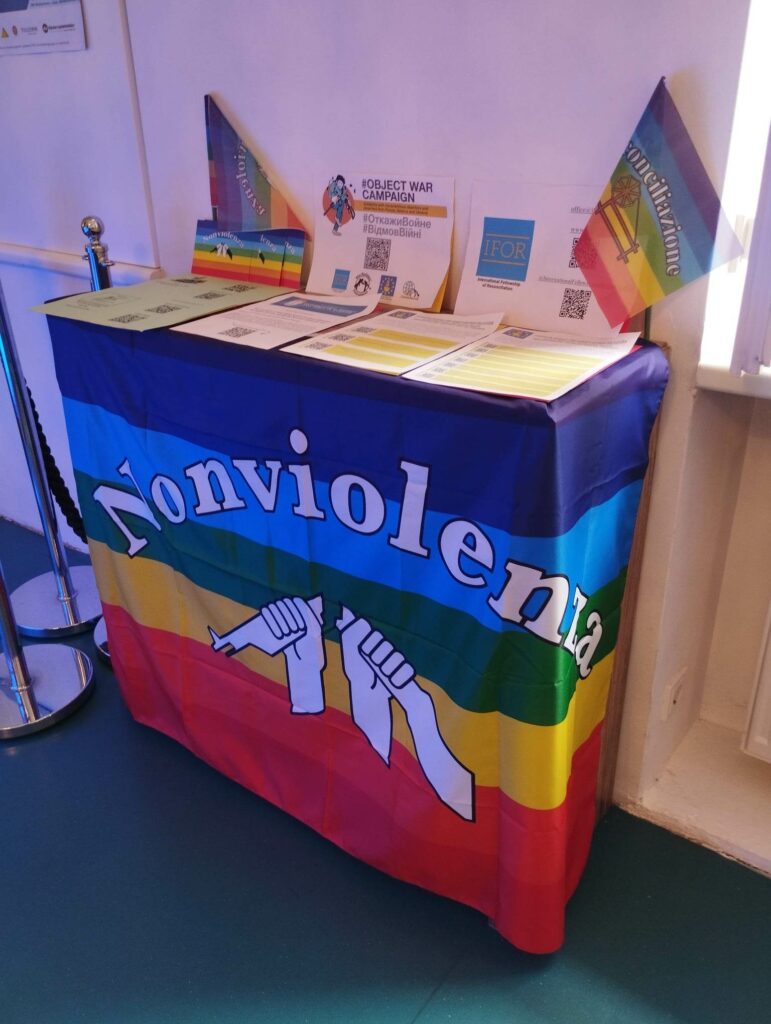
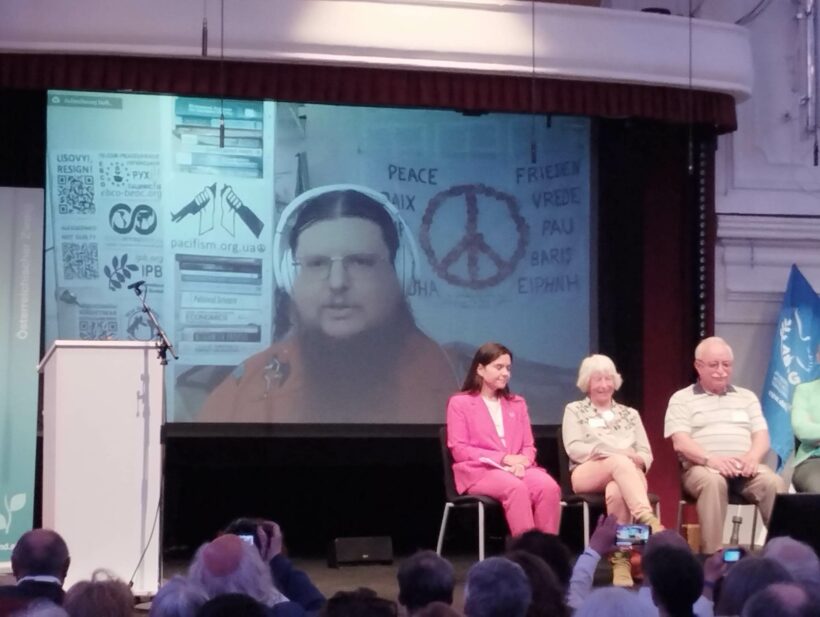
[1] https://www.pressenza.com/el/2023/06/sipri-ta-krati-ependuoun-se-purinika-oplostasia/
[2] https://www.icanw.org/2022_global_nuclear_spending_article
[3] https://demilitarize.org/media_news/international-summit-for-peace-in-ukraine/
[4] https://www.pressenza.com/el/2019/12/enas-deinosavros-sto-dwmatio-tis-klimatikis-allagis/


